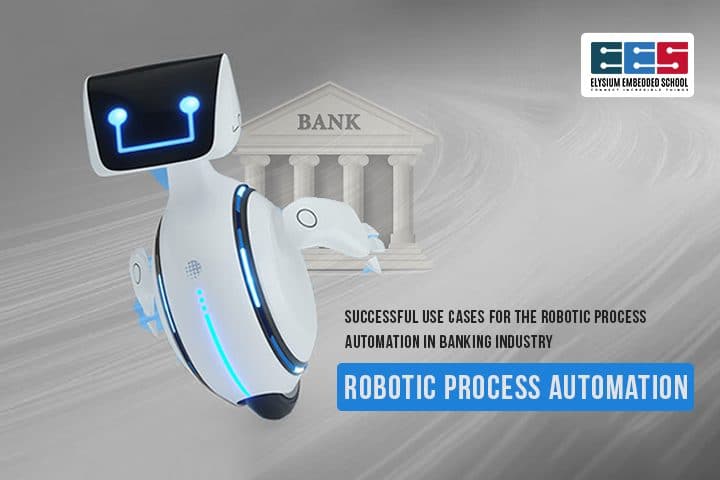
Different types of Microcontroller Programming used in Embedded Systems
January 22, 2019
Hadoop Streaming Applications Using Python
February 8, 2019RPA Banking Use Cases
RPA Banking Use Cases : The Robotic Process Automation refers to software that can be easily programming to do basic tasks across applications just as human workers do RPA Certification software is designs to defeat that burden of repetitive, simple tasks on employees. While, Latest Robotic Process Automation means that automation is the use of software with artificial intelligence and computer learning abilities to handle high volume, repeatable tasks that before compulsory humans to perform.
Hence, It’s the purpose of technology that allows employees in accompany to configure computer software or a “robot” to capture and interpret existing acceptance and interaction with other digital systems.
Robotic Process Automation in Banking Industry
While Branch automation is a form of banking self-regulation that combines the customer service desk in a bank office with the bank’s customer’s records in the back office. Banking automation refers to the system of serving the banking process by highly automatic means to that human innervation is shorten to a minimum.
Here, they list out the significant methods about Robotic Process Automation in Banking Industry, Such as,
Customer Services :It’s the Automation opportunity. The Robotic Process Automation is one of the newest frontiers in customer service. At its essence because of, RP Industrialization is the application of computer software of robot to process transactions, manage data or trigger responses, depending on the scope of the request.
Compliance: Certainly, Robotic Process Automation software in Banking enables you to quickly and accurately manage high volume process across multiple infrastructures and surrender the experience your customer’s desires. Especially, Banks and other financial institution are subject to high-level regulatory compliance.
Account Payable: AP is a term of describing the ongoing effort of many organizations to streamline the business process of their minds payable department. Mainly, the account payable function main responsibility is to process and review performance between the company and its suppliers.
Credit Card Processing: Traditional CC processing utilize to take weeks to validate the customer information and approve CC. Moreover how long waiting period was a disappointment to customer and cost to the bank. However with the help of Robotic Process Automation banks now can process the request within hours.
Fraud Detection: While, Due to rapid digitization and preference for an online transaction, it is critical for an organization to have a robust security mechanism that will enable the organization to stay ahead of online fraudsters and hackers.
Report Automation: Automation solutions tend to focus on the highly manual task that is routine repeatable and time-consuming. In the future, the entire regulatory reporting process will likely be automats and end-to-end, from source system data to report mapping and business rule automation to say generation.
Account Closure Process: Hence, A bankrupt account is an account that has been out or otherwise abort, either by the customer, custodian or counterparty regarding accounting for the new fiscal year with a zero balance.
Benefits of Robotic Process Automation
The Robotic Process Automation is having lots of benefits in various sectors. Blow applications on the Banking Industry. They are the most essential and efficient benefits. Such as,
- Cost devaluation
- Customized efficiency
- Independence from the mutual service center
- Accuracy
- Flexibility
- Higher agility and throughput
- Improving the customer experience
- High-quality process and output
While Robotic Process Automation has many benefits, there revenue to be a clear commitment for humans in the workforce. Automation allows for regular jobs to become more fluid, ensuring more effective human labor in Embedded System. With exemption from high-volume, low complexity managing work, humans can continue to drive and innovate in areas such as customer service, expertise-based tasks, the improvement of new products, etc.




